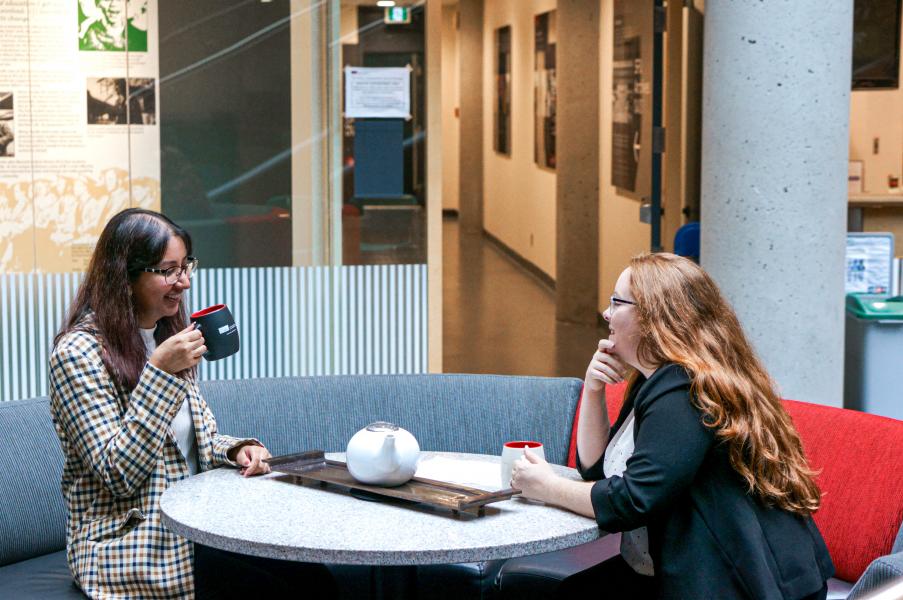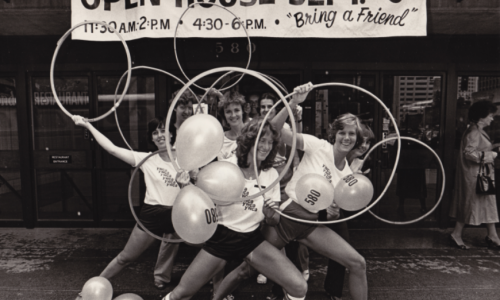
The gender wage gap refers to differences in average pay based on gender. It is an indicator of gender inequities and is especially evident for those who face multiple barriers, such as racialized women, Indigenous women, women with disabilities and those who self-identify as LGBTQ2S+. The impact of the gender wage gap is not just earning less than men, but it contributes to an increased risk of experiencing financial difficulties in retirement, feeling pressured to stay in abusive relationships for fear of falling into poverty, feeling more stressed, and experiencing lower mental and physical health. Although there are legislations related to pay equity, they often apply to government employers and the public sector. Many institutional, structural and cultural factors also play a role in maintaining the gender wage gap. To learn more about the gender wage gap, how to end it and its impact on women with disabilities, newcomer women and those who self-identify as LGBTQ2S+, read this fact sheet on ending the gender pay gap by the Canadian Women’s Foundation.
The gender wage gap is only one example of the gender inequities women face in their careers. Therefore, in honour of International Women’s Day, SFU Career Peer Advisors have collaborated to compile a list of recommended career resources aimed towards reducing gender-related employment gaps and empowering those who self-identify as women.
The Career Peer Advisors are SFU students who work at the SFU Career and Volunteer Services to provide one-on-one advising and workshops on career-related topics, such as resumes, cover letters, LinkedIn and volunteering.
Career Resources:
Jo-Anne recommends Young Women in Business:
"As I look down the road at the last decade of my career, I know that women, especially the women that have been traditionally underserved in Canada might still hit the glass ceilings that the women of my generation hit. That’s why I love the Young Women in Business forum due to its vision to empower women, support them to be leaders and give the power of networks that will help remove the glass ceiling through events and programs, such as workshops and a mentorship program."
Jo-Anne Nadort | Career Educator, Career Peer Supervisor
Sukhpreet recommends the Make Possible Mentoring Program:
“The Society for Canadian Women in Science and Technology (SCWIST) is a Canadian not-for-profit organization that aims to increase the presence and influence of girls and women in STEM. I love SCWIST’s commitment to promoting women’s participation and advancement in STEM through education, networking, mentorship, partnerships, and advocacy. For example, their MakePossible Mentoring Network, an online platform, allows you to create mentoring connections, meet professionals face-to-face, attend networking events and workshops, develop skills, and explore different career paths. Thus, MakePossible is an excellent free career resource that promotes diversity and representation in STEM!”
Sukhpreet Shergill | Career Peer Advisor, Psychology & Biology Double Degree
Prabdeep recommends “How to Land a Job by Networking”:
“In this video, Hdeal Mohamed is interviewed about her experiences in networking and how it led her to gain useful insights into her desired industry and a job offer. The reason I suggest this resource is because I related to Hdeal's hesitation about reaching out to people I don't know on LinkedIn. However, after trying to connect with people to get information and not taking rejections personally, she gained a lot of helpful resources and information. Hdeal's experiences encouraged me to try doing the same. She also talks about some tips, so I highly suggest watching this video!”
Prabdeep Dhillon | Career Peer Advisor, Psychology Major
Maryum recommends "Get Comfortable with Being Uncomfortable”:
“This talk encourages viewers to embrace discomfort as a means of personal growth and progress. Jones emphasizes the importance of stepping out of our comfort zones to develop resilience and build confidence, sharing personal anecdotes and practical advice. Her talk resonated with me personally, reminding me of how stepping out of my own comfort zone has empowered me to take risks and cultivate creativity as I navigate through my professional journey.”
Maryum Chaudhry | Career Peer Advisor, Public Health Masters Student
Major recommends Women’s Enterprise Centre:
“WeBC is a non-profit institution that supports women entrepreneurs with business loans and expertise, training, resources, and peer network support to help businesses grow and thrive. I love reading their success stories, which demonstrates the possibilities of women in business. Check out their list of various events, including webinars and in-person socials for International Women’s Day!”
Major Wu | Career Peer Advisor, Interactive Arts & Technology Masters Student
Samiya recommends FOCUS@Work:
“It is a free two-week online job search program. In this program, YWCA conduct workshops for women with a variety of assessments, including career, personality, skills, interests, and values, as well as personal development such as self-esteem and self-assertion, communication skills, conflict resolution, managing change and stress, skill development, as well as job search skills. As a YWCA employee, I have learned about this program, and I love how they supports women on so many levels.”
Samiya Rashmi | Career Peer Advisor, Resource & Environment Management Major
There are many more resources, such as WorkBC, Women in Trades and Bridges for Women. Save these links for yourself or even forward the blog to someone who you think would benefit from these resources and information!
The impact of gender inequities women experience, such as the gender wage gap and glass ceilings, are not just limited to their earnings, but can have widespread and lifelong impacts on their mental, physical and financial wellbeing. That’s why the Career Peer Advisor team compiled these resources to take a step towards pushing back against these barriers in a women’s career journey and to help empower them.
Since March 8th is International Women’s Day, try committing to one action, such as challenging gender stereotypes, advocating for pay equity and attending events to learn more. You can also read this blog from the Canadian Women’s Foundation, where they suggest 10 ways to advance gender equality. Now that you know more about gender inequity and gained some valuable resources, continue to engage in actions to strive toward gender equality and advocate for women’s rights beyond International Women’s Day.
Beyond the Blog
-
Get help with your career exploration and job search tools, such as resume and LinkedIn by contacting the SFU Career and Volunteer Services















